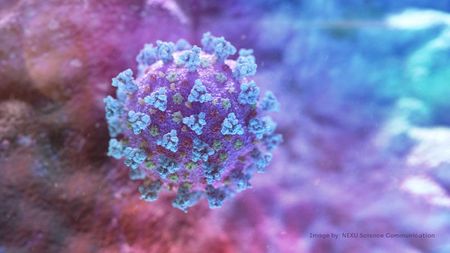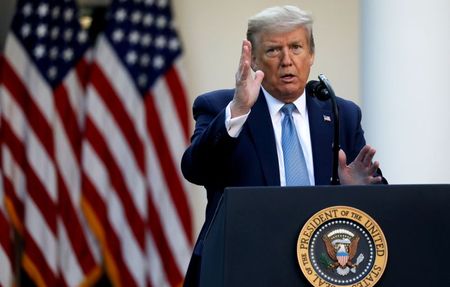(Reuters) – Here’s what you need to know about the coronavirus right now:
Who gets to restart the U.S. economy?
The tug-of-war over who gets to reopen the world’s largest economy – President Donald Trump or state governors – enters its next round on Thursday as Trump announces what he calls “new guidelines” for the move.
The U.S. coronavirus death toll – the highest in the world – surged past 30,000 on Wednesday after doubling in a week, but Trump believes the country has passed the peak on new cases.
Many do not agree – and are preparing to resist. New York state government sources told Reuters that Governor Andrew Cuomo has hired McKinsey consultants to develop a strategy for the safe economic reopening of the region according to its own, science-based timetable.
A French standoff for Amazon
Tensions between economic and health imperatives are also coming to a head in France where Amazon closed six warehouses on Thursday until at least April 20 after it clashed with unions over safety measures.
The world’s largest online retailer is facing mounting scrutiny on both sides of the Atlantic as it juggles a surge in online orders and employees’ safety.
So far France is the only country where it has shut down all of its so-called fulfilment centres after unions complained that they were still too crowded and filed a legal challenge. There is no clarity yet on when they will reopen.
Homicide charge over COVID-19
The pandemic has raised a series of as yet mostly unanswered questions about who if anyone bears legal responsibility for helping its spread.
Now India has charged the chief of a Muslim seminary with culpable homicide for holding a gathering last month that authorities say led to a big jump in infections.
The seminary is the headquarters of the Tablighi Jamaat group, one of the world’s biggest Sunni Muslim proselytising organisations. It promotes a pure form of Islam and has followers in more than 80 countries.
Testing through sewage
Australian researchers said on Thursday they expect to roll out within weeks a programme of testing raw sewage to detect the presence of the coronavirus and pinpoint communities at risk. A successful pilot project was carried out in Queensland state.
On a wide scale, sewage sampling can gauge the approximate number of people infected in an area without the need to test every individual, the CSIRO national science agency said.
The project makes use of an existing system in Australia under which crime agencies monitor the wastewater of about 57% of the population to detect the presence of illicit drugs.
Captain Tom’s $15 million garden stroll
Feeling pressure to be productive while stuck at home?
Well, you can’t beat Tom Moore. The 99-year-old British war veteran has raised more than 12 million pounds ($15 million) for his country’s health service by walking the 25 metres around his garden 100 times, days before his 100th birthday on April 30.
The retired army captain has used a rollator walking frame since breaking a hip and wanted to raise the money to thank the health service for the care he had received.
(Compiled by Mark John and Karishma Singh; Editing by Andrew Cawthorne)



